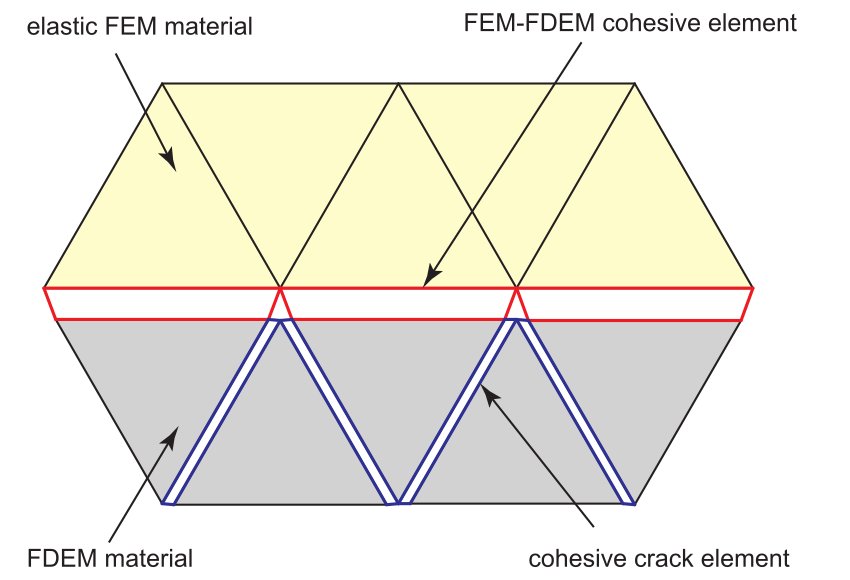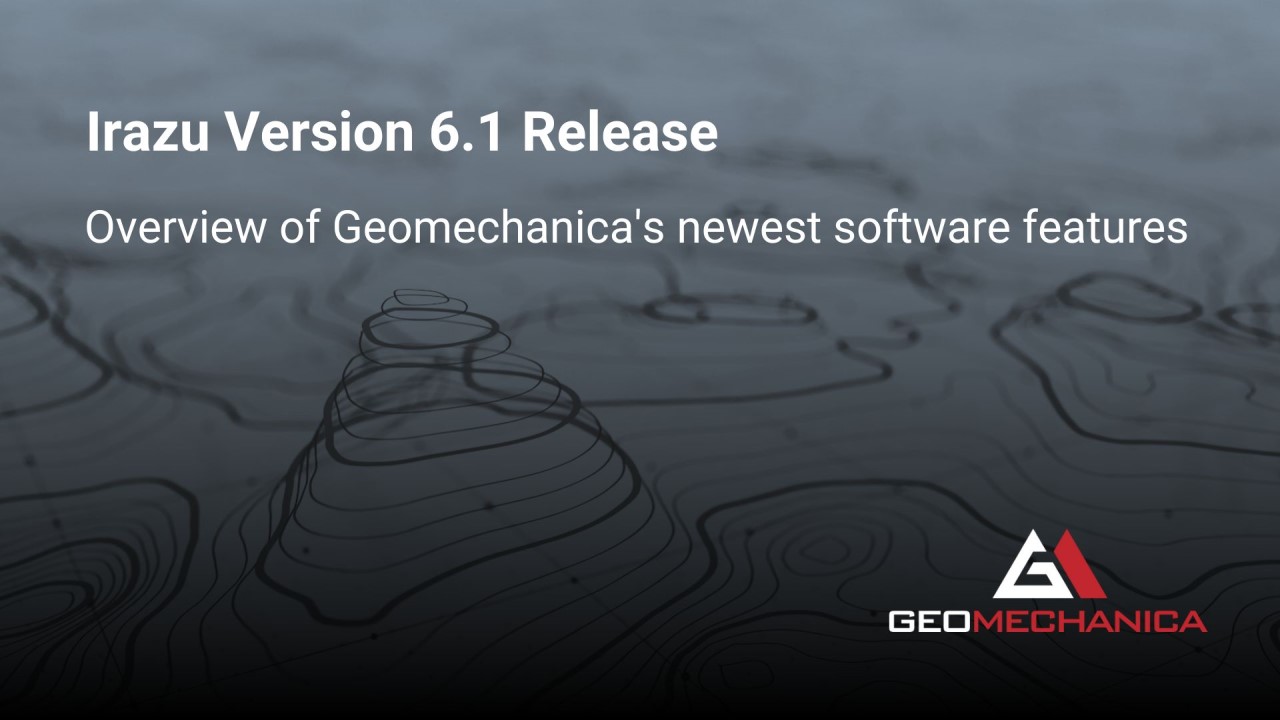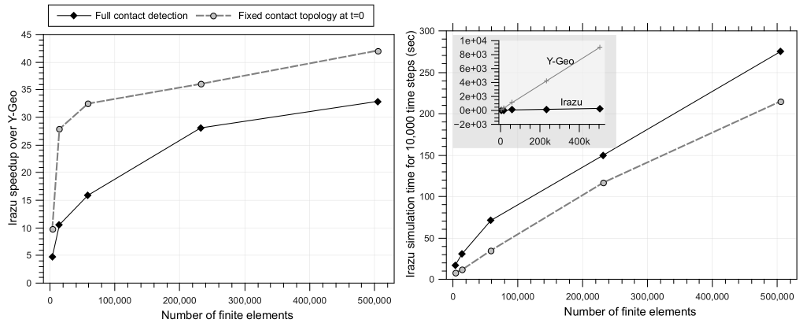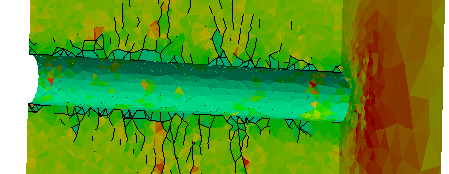In Irazu version 6.1, a new elastic FEM material model has been added to grant the ability to explicitly define unfracturable domains within an FDEM model. Ultimately, this leads to significantly reduced simulation run times without compromising the accuracy of the result. In addition, we would like to provide a sneak peek of new elasto-plastic … Read more
DEM
We recently hosted a webinar to provide an overview of the latest features of Irazu version 6.1 in action. We also demonstrated two practical applications of Irazu, including a slope stability problem using the new time-varying, user-imported water table profiles, as well as a tunnel excavation model with mixed FEM and FDEM material models. For … Read more
Irazu makes use of state-of-the-art high performance computing techniques to speed-up computations. In particular, we use GPU (graphics processing unit) computing on consumer-grade AMD graphics cards. To demonstrate the improvement in computation speed, five uniaxial compression strength (UCS) tests with an increasing number of finite elements were simulated using Irazu and the sequential CPU code … Read more
We are excited to announce that we have been working on the introduction of hydro-mechanical (H-M) coupling in our Irazu FDEM software. The introduction of H-M coupling arguably makes the Irazu software one of the most sophisticated simulation software currently available for geomechanical applications as a multitude of multi-physics processes can be taken into account, … Read more
Following up from our previous blog post on 3D FEMDEM Simulations, 3D simulations of a tunnel excavated in a weak rock (resembling properties of a clay shale) are presented here (E=3.8 GPa, ν=0.25, σt=0.41 MPa, c=5 MPa). In this simplified case study, the entire length of the tunnel was excavated at once at the beginning … Read more




